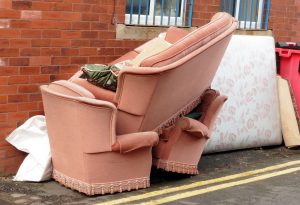Nicole Bradick used to be a lawyer. Now she’s an entrepreneur and legal tech expert who recently founded Theory and Principle, a software design and development firm that focuses a substantial part of its work on civil justice projects.
And since most of the people fighting for civil justice are pro se litigants, she makes it her business to understand us.
That’s not easy for a lawyer. Lawyers are trained to advocate for members of the general public who, by and large, lack legal training. The process of becoming a lawyer instills a deep tribalism — there are lawyers and there are non-lawyers — that makes some members of the bar gag reflexively at the thought of people representing themselves in court.
But Nicole Bradick is a badass, and badasses manage to get past their learned reflexes.
So it was that Nicole Bradick found herself in eviction court one day last year.
She wasn’t being evicted. She wasn’t there to represent a landlord. She was there to observe, to learn from a newfound perspective, to experience the court as best she could the way non-lawyers experience it.
It was eye opening, to say the least.
First there was the maze of courthouse security and the atmosphere of cold solemnity. There were different locations for different types of cases, and the pressure to be on time for your case. It would be intimidating, perhaps by design, for anyone without daily business in court.
There were the obvious class and ethnic differences between the mostly White lawyers, clerks and other court officials, and the mostly non-White tenants who’d been dragged into court to be kicked out of their homes.
And then there were embarrassing recollections of coming to court in the past, as a lawyer who simply belonged. Had she been dismissive or shown contempt to an unrepresented person? How might she have contributed to the alienation of pro se litigants that she was now able to see?
Bradick’s observations included a long list of the obstacles pro se litigants face in getting a fair day in court. In a word, she described the experience as “horrendous.”
You really want to read the whole thing, but here’s the spilt tea:
The hard work that lays ahead must involve a change in behaviors, systems, and attitudes, and it has to start with the individuals of privilege (lawyers and judges) in the system. If we have more lawyers that understand the experience and empathize with self-represented litigants, we can start to transform the bar into advocates for those that get lost in the system or need help navigating through it. Maybe then we can start to effect real systemic change, but I’m not holding my breath on that one for now. Given what I saw, the system is too flawed to be open for any real change in the short-term — this has to be a long game.
It doesn’t get much clearer than that. Those of us who’ve experienced the courts without a law degree have slightly more choice words about it, but it’s great to see someone with a legal background who gets it.
At least in the long term, there may be hope for the profession. In the meantime, we’ll keep banging on the courthouse doors for access to justice.



